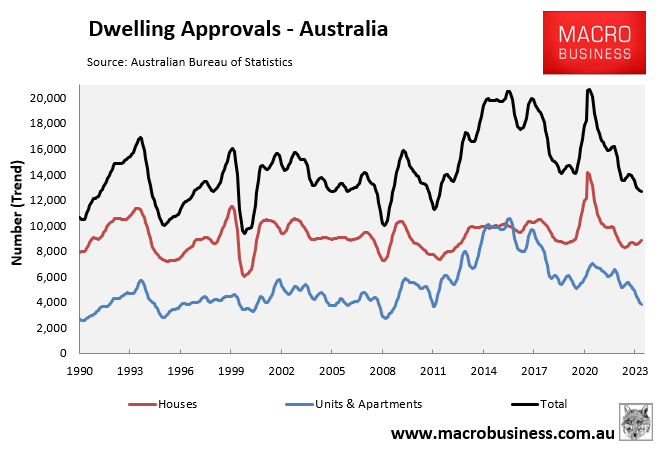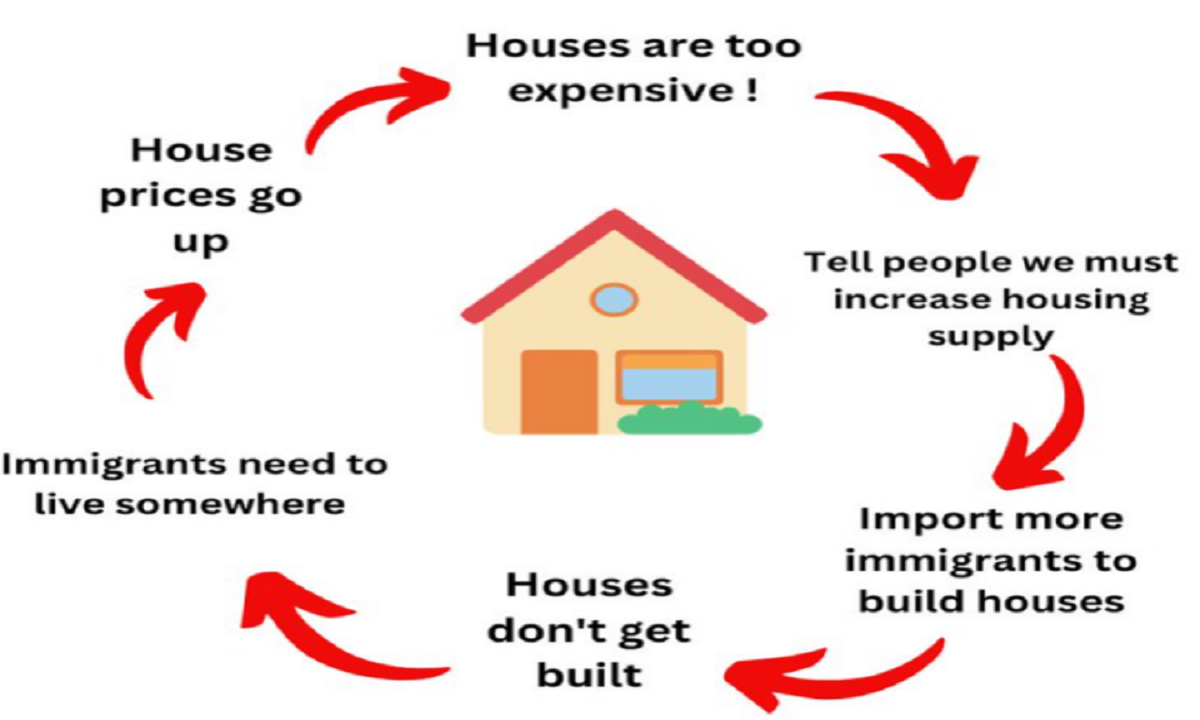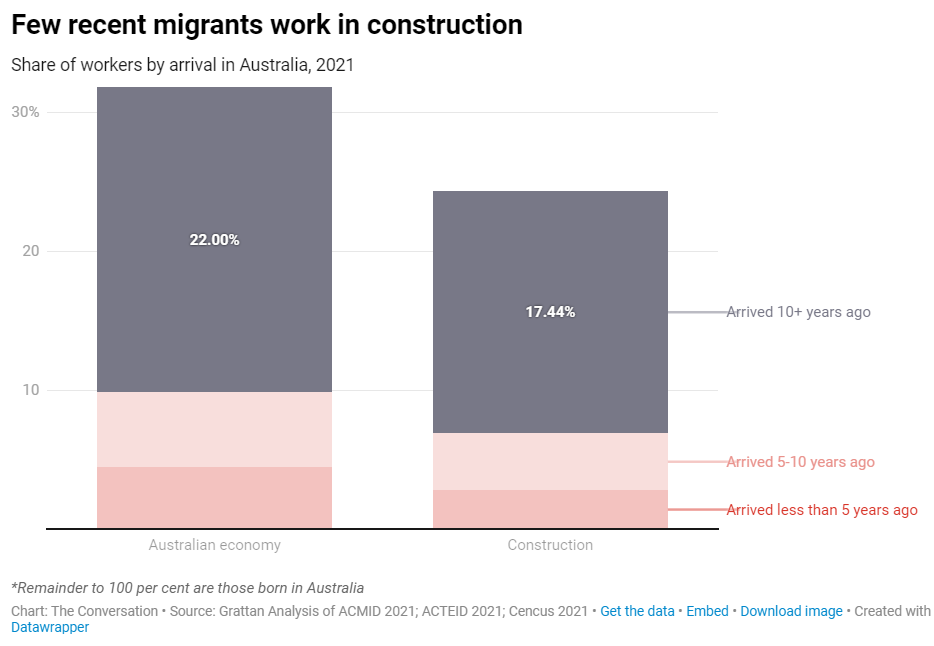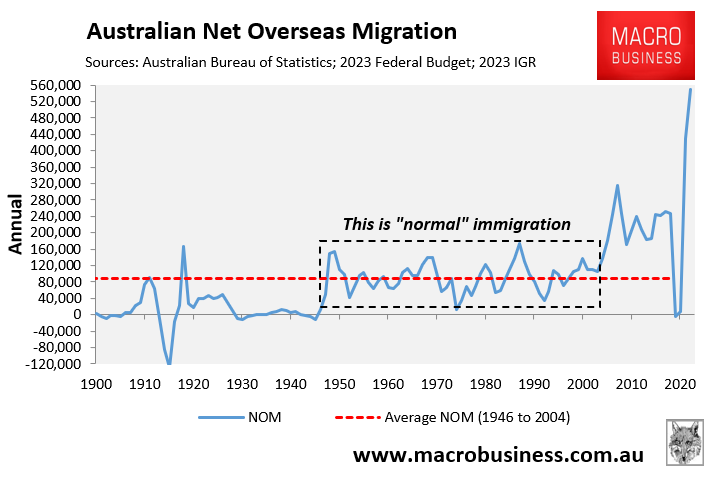The Housing Industry Association (HIA), “the voice of Australia’s residential building industry”, has attacked Australia’s skilled migration system.
In a media release, HIA claimed that the skilled migration system is worsening housing shortages and needs a complete overhaul.
Australia is not bringing enough skilled migrants into Australia to build 170,000 homes per year let alone the 240,000 homes that we need to be building to address the acute housing shortages being faced.
The skilled migrant system needs a complete overhaul. The visa options available for construction are not working.
Data from the Department of Home Affairs shows just 1,346 workers in construction trades have been granted temporary work visas in the nine months to March 2024.
The shortage of skilled workers is a major impediment to the supply of housing. Labour shortages are resulting in project delays which add to the cost of construction.
Risks associated with labour shortages are causing businesses to shelve projects that could deliver the housing that Australia needs…
If the Government is truly committed to seeing the Housing Accord target achieved more must be done to train local workers and enable industry to make better use of the skilled migration system.
The HIA’s criticism follows the exclusion of tradies and construction workers from the draft skills priority list for migrants, whereas yoga instructors, martial artists and dog handlers were included on the list.
It also comes as the as the Albanese government’s target of building 1.2 million new homes over five years falls further behind, with shortages of construction workers one of the barriers.

The HIA is right to assert that Australia’s migration system is exacerbating housing shortages. I would argue that the migration system is designed to generate housing shortages.

Australia imports humungous numbers of people into questionable people-servicing industries that aren’t suffering genuine shortages. These imported migrants add to housing demand without providing any real boost to the supply side.
Migrants are heavily underrepresented in the construction industry:

As a consequence, Australia finds itself perpetually short of housing and infrastructure.
Clearly, Australia requires a much smaller migrant intake that is focused on the skills the nation actually needs.
Net overseas migration must be calibrated to run at a level that is below the nation’s capacity to build housing and infrastructure.

Otherwise, Australia’s housing market will remain in perpetual shortage and living standards and productivity will continue to be crush-loaded by the endless population flood.

